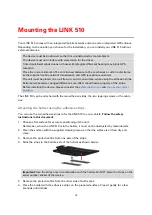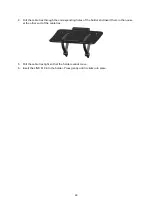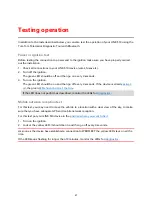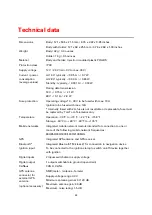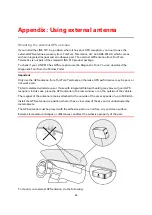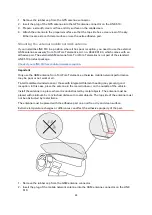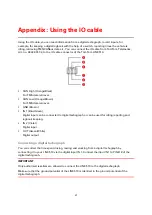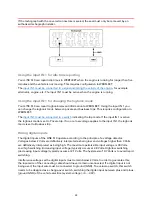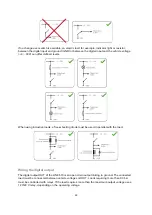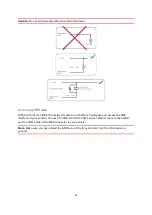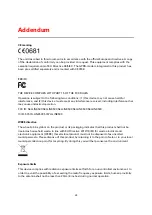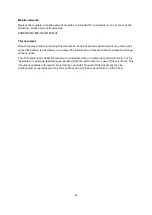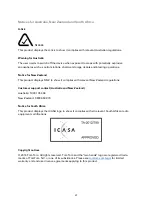
32
If the tachograph with the covered connectors is sealed, the seal must only be removed by an
authorised tachograph installer.
Using the input IN 1 for idle time reporting
Your LINK 510 can report idle times to WEBFLEET when the engine is running for longer than five
minutes and the vehicle is not moving. This requires configuration in WEBFLEET.
The
input IN 1 must be connected to a signal indicating the activity of the engine
, for example
alternator, engine, etc. The input IN 1 must be active when the engine is running.
Using the input IN 1 for changing the logbook mode
Your LINK 510 can report logbook-relevant information to WEBFLEET. Using the input IN 1 you
can change the logbook mode between private and business trips. This requires configuration in
WEBFLEET.
The
input IN 1 must be connected to a switch
indicating the trip mode. If the input IN 1 is active
the logbook mode is set to Private trip. If no or a low voltage applies to the input IN 1 the logbook
mode is set to Business trip.
Wiring digital inputs
The digital inputs of the LINK 510 operate according to the principle of a voltage detector.
Voltages below 2 Volts are definitively interpreted as being low and voltages higher than 3 Volts
are definitively interpreted as being high. The maximum permissible input voltage is 30 Volts.
Low/high switching (increasing input voltage) typically occurs at 2.8 Volts. High/low switching
(decreasing input voltage) typically occurs at 2.1 Volts. The hysteresis of 0.7 Volts is to avoid rapid
switching.
Interference voltages at the digital inputs must remain below 2 Volts. In order to guarantee this,
the input wire of the connecting cable should never remain unconnected. If a digital input is not
being used, the input wire must be connected to ground (GND). To evaluate a switch, this switch
needs to be designed as a change-over switch, switching the digital input between plus and minus
(ground GND) of the vehicle electrical system voltage (+9 ... 30V).

